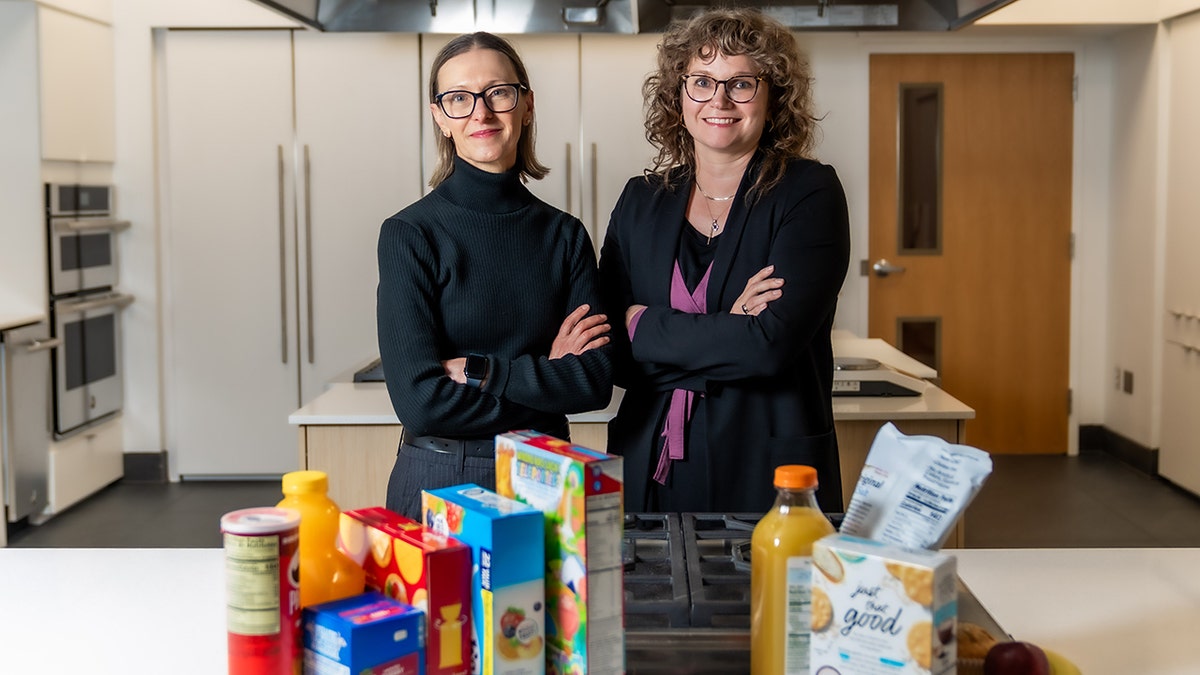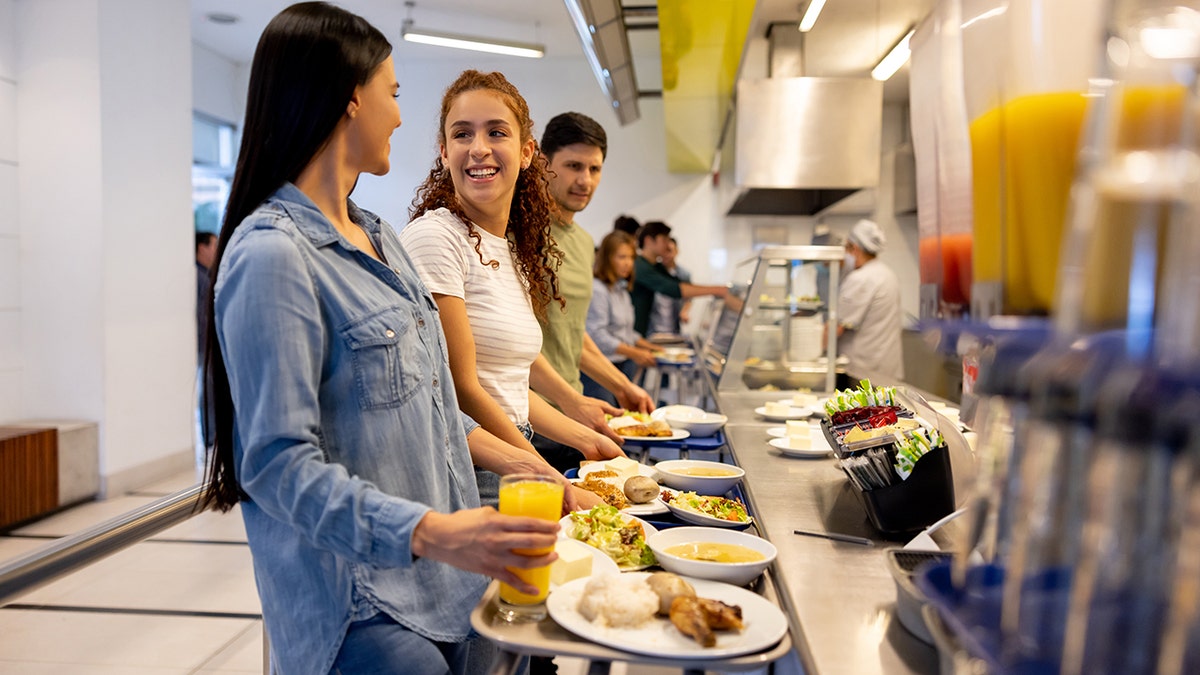NEWYou can now listen to Fox News articles!
Young people may be uniquely vulnerable to ultra-processed foods and more likely to overeat when consuming a diet high in them, according to a new study.
In a tightly controlled Virginia Tech feeding trial, 18 to 21-year-olds ate more at an all-you-can-eat breakfast and again when offered snacks — even when they were not hungry — after two weeks on a high ultra-processed food (UPF) diet compared to their slightly older Gen Z peers.
Researchers enrolled 27 adults ages 18 to 25 in a crossover study comparing two diets — one with 81% of calories from UPFs and one without any. Each diet lasted two weeks, with meals prepared in a lab and matched for calories and nutrients. After each phase, participants ate freely from a large buffet breakfast, which offered about 1,800 calories, and then took part in a snack test to measure whether they would keep eating even when not hungry.
ADDITIVES IN ULTRA-PROCESSED FOODS LINKED TO HIGHER DEATH RISK IN MAJOR STUDY
Younger adults aged 18 to 21 consumed nearly 100 extra calories and were more likely to eat when not hungry after the ultra-processed diet, according to the findings, which were published Nov. 19 in the journal Obesity.
“The young people ate about 90 calories more after the UPF diet, and if that occurred three times daily in the three main meals, that would represent approximately 270 extra calories per day,” Brenda Davy, a senior author on the paper and professor in Virginia Tech’s Department of Human Nutrition, Foods and Exercise, told Fox News Digital. “Over the course of a week, that could represent almost 2,000 extra weekly calories.”
“This type of eating habit, eating when not hungry, is linked to weight gain and increased risk of obesity,” Davy added.
EVEN LOW-CALORIE PROCESSED FOOD CAUSES WEIGHT GAIN, TESTOSTERONE LOSS IN MEN, STUDY SUGGESTS
The researchers said the pattern could play out in real life, and have long-term implications. Dining halls, takeout and campus food courts give young people unlimited access to ultra-processed items, often paired with sugary drinks and snacks.
The findings were unaffected by participants’ sex or body mass index (BMI), a measure of body fat.

“I thought BMI would be the factor that mattered, but it was age,” said neuroscientist and co-author Alex DiFeliceantonio, an assistant professor with Virginia Tech’s Fralin Biomedical Research Institute. “The younger you were when you entered the study, the more you ate after the UPF diet compared to the non-UPF diet,” she told Fox News Digital.
FOR THE FIRST TIME, THERE ARE MORE CHILDREN IN THE WORLD WHO ARE OBESE THAN UNDERWEIGHT
The study, which was funded by a grant from the National Institutes of Health, was small and had a short duration, so the results can’t show long-term weight changes or real-world eating patterns. The experiment also measured behavior at a single buffet meal and short snack test, which doesn’t fully reflect how people eat throughout the day or on a college campus with constant food access. “Future studies are needed to determine if this takes place over the course of a day or week,” Davy noted.
The researchers say larger, longer trials including younger teens and real-life dining settings could help reveal how UPFs influence appetite and the brain’s reward systems over time. “We need to understand what it is in the ultra-processed foods that could be having these effects,” DiFeliceantonio added.

Researchers based their work on the NOVA classification system, which sorts foods by how industrialized or altered from their original form they are. Under this framework, UPFs include soft drinks, packaged snacks, flavored yogurts and frozen meals made with additives and ingredients not usually found in home cooking.
TEST YOURSELF WITH OUR LATEST LIFESTYLE QUIZ
Some experts, however, push back on the definition of UPFs, saying it is too broad.
“Health authorities across the globe have rejected using the ‘ultra-processed food’ concept as a basis for public health policy, citing its lack of scientific consensus, its imprecision and potential to cause confusion, and the risk that it could undermine established, evidence-based nutrition strategies,” the International Food and Beverage Association previously told Fox News Digital.
Dr. Evan Nadler, who co-directed the Children’s National Obesity Programs at Children’s National Hospital in Washington, D.C., before founding ProCare Consultants and TeleHealth, said that, while the NOVA needs improvement, it is “the best we have for now.”

Nadler said the Virginia Tech findings fit what is already known about adolescent development. “Adolescents are already prone to making rash decisions, and eating UPFs may just be another of them,” he said, adding, “I would guess the younger kids might be even more susceptible to the effects of UPFs.”
Nonetheless, Nadler said, “This is great preliminary data for a larger study that I would hope included kids under the age of 18.”
Read the full article here








